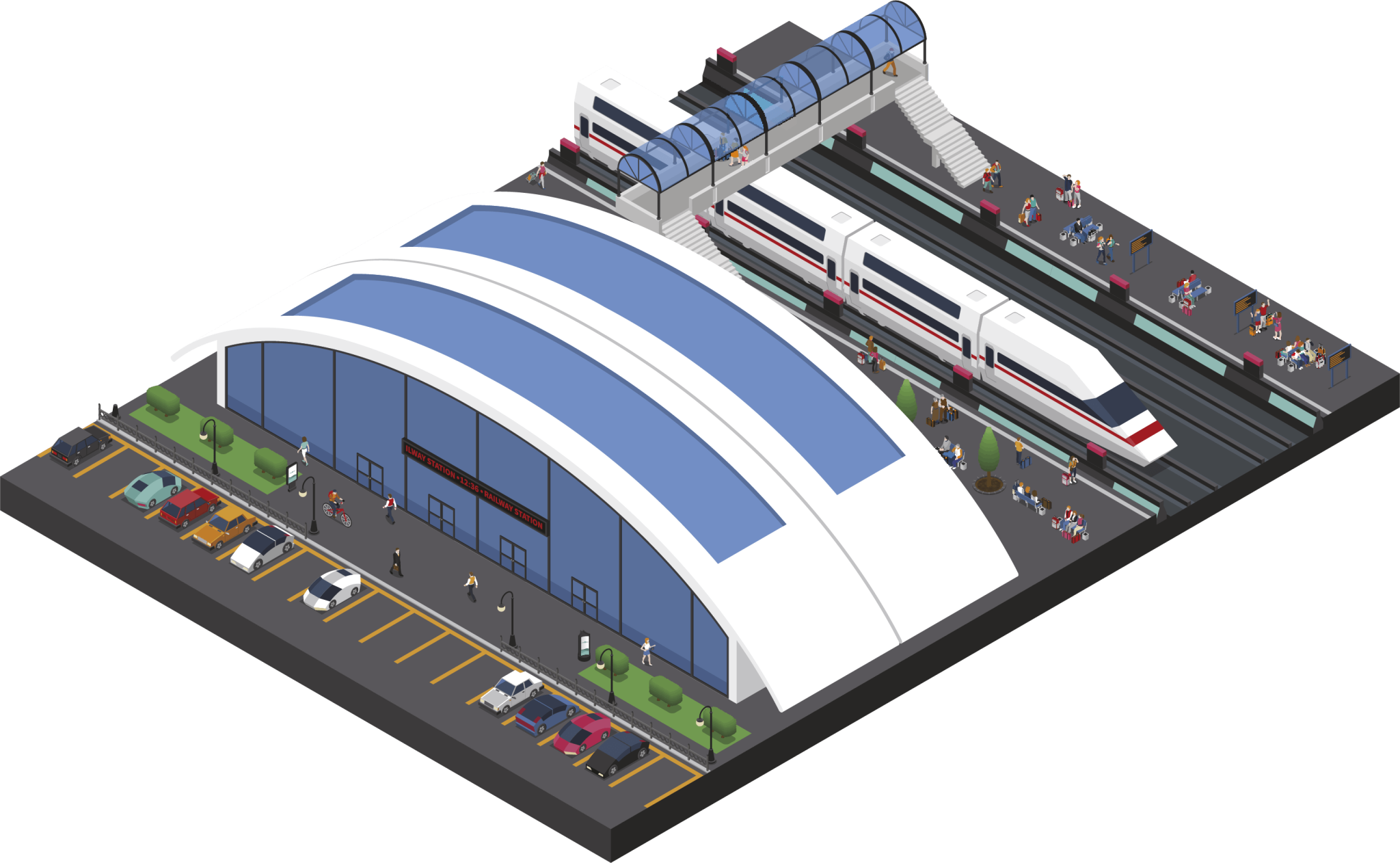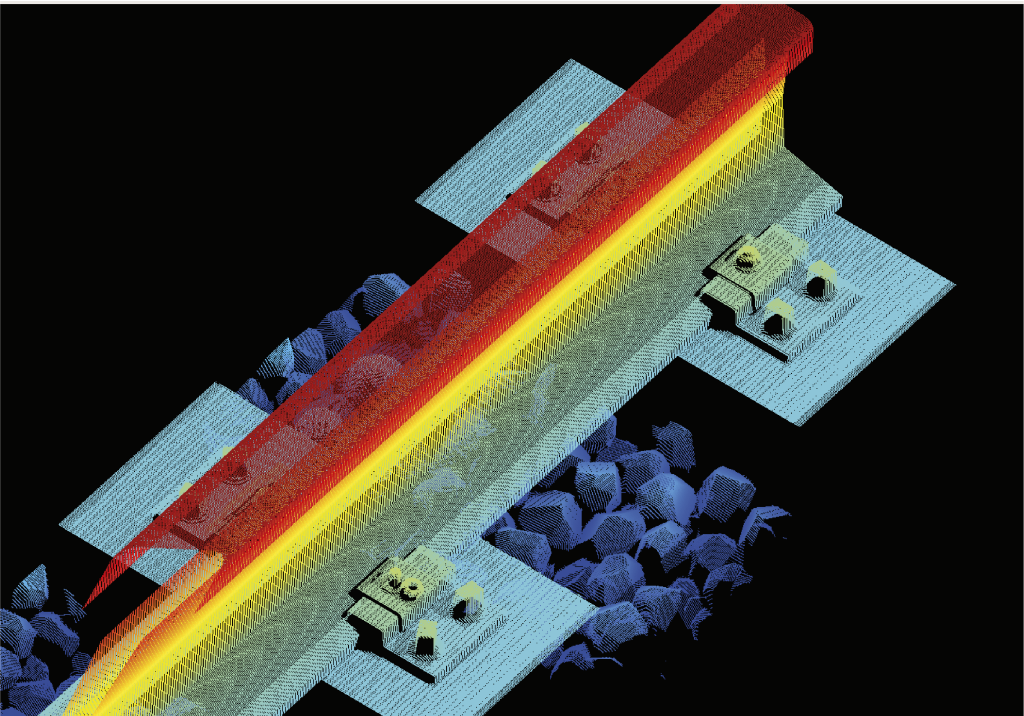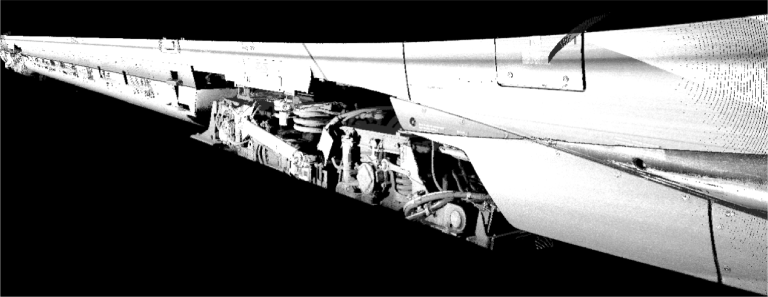RAILWAY INDUSTRY
The application of computer vision technology in the rail industry is on the increase because it offers significant benefits in terms of safety, predictive maintenance, traceability and effectiveness.
Using artificial intelligence cameras and algorithms, it is possible to capture images of train elements and detect anomalies such as deformations, cracks or irregular wear. This allows operators to analyze the condition of the components and make decisions about the necessary maintenance or repairs.
Do you want to know your solution?

SECURITY AND COMPETITIVENESS

Wheel state control system
Early detection of possible problems, which can help prevent accidents, improve rail safety and optimize the maintenance of trains. It can be integrated with other train control systems providing a complete real-time monitoring and monitoring solution.
- Diameter Control
- Tab Profile Control.
- Width, height, excess material and QR factor they use.
Brake State Control System
- Cover. Width and presence.
- We measure the angle of the clip to determine if it is correctly fixed.
Train scanner
With the use of artificial intelligence algorithms, captured images are processed to analyze features such as color, shape and texture, with the aim of detecting deformations, cracks, abnormal wear and other anomalies.
In addition to the images, these scanners can be equipped with sensors to measure vibrations, temperature and other important parameters of the train components, helping to identify hidden problems.
Railway Inspection
Track inspection is crucial for preventing train accidents and ensuring safety. Through the use of systematic 3D and 2D scanning, as well as vision-based measurement and evaluation technologies and deep learning, it is possible to monitor the state of the tracks in different sections and elements such as rails, crossbars and needles. This allows :
- Detect early and replace if necessary.
- Monitor use and erosion.
- Evaluate the state of the road (roads, track width, ballast, etc.).
- Carry out the predictive maintenance of all the elements involved.
SUCCESS STORIES
BENEFITS ACHIEVED
- Tracking wear in time.
- Temporary forecast of when each item should be changed.
- We avoid having to stop the train for maintenance. Current maintenance is manual and therefore less effective than artificial vision, much slower and more error-sensitive.
- Increased train availability (do not stop for maintenance, as it is done with the train underway).
- Status tracing of each particular train’s live element.
- We abolish the risk of derailment.
- Database traceability of each control carried out.
- Very high cost reduction.

Measurement of brake pills
The figure shows a close-up of a brake disc with one of its pills and the pincer subsystem. The wear of all brake pills can be controlled, monitoring their individual size record over time. As with wheels, this evolution in the size of each brake tablet allows predictive maintenance tasks to be carried out with confidence.
DISCOVER HOW WE WORK
OUR PROCESS

Analysis
Visit to the factory. Knowledge of the machinery. Study of the cost savings that machine vision will bring. Using 3D scanners, we can reproduce the exact location where the vision system will be installed.
Test
Laboratory tests of all the cases to be analysed. Demonstration to the client that we will be able to detect the characteristics he needs.
Solution
Manufacture of the customised machine vision solution.
ARE YOU UPDATED WITH ALL THE LATEST DEVELOPMENTS IN ARTIFICIAL VISION?
WE KEEP YOU INFORMED!
CAN'T FIND YOUR SOLUTION?
DISCOVER SOLUTIONS FROM OTHER INDUSTRIES






